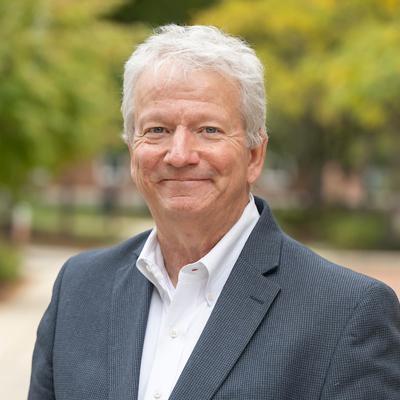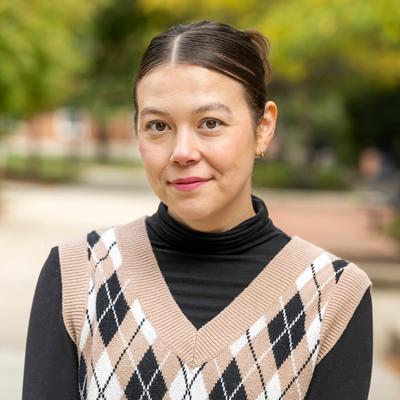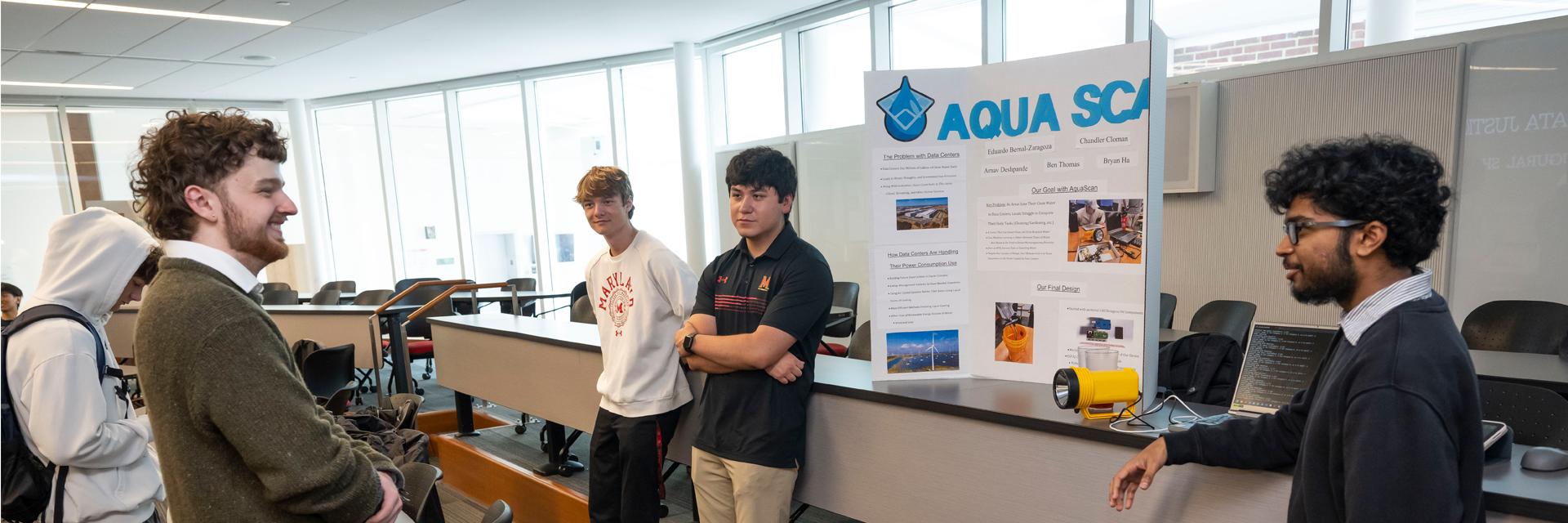Data Justice
Information, analytics and computing for social change
Introduction
Data Justice (DJ) provides students an opportunity to interrogate the biases that are built into information collection, design, and analysis. Students explore how specific values are coded into datasets, algorithms, AI-driven systems, machine learning models, and other sociotechnical systems. They gain advanced data-related skills that will serve them in a wide variety of careers that aim to make the world a better place through information.
By the conclusion of the program, students will be able to:
- Employ justice-centered approaches to equitable computer and data sciences;
- Analyze how cultural values, power, and privilege are encoded into technologies;
- Critique the sociopolitical values of data structure and algorithmic design;
- Analyze ways that computing and data science have been used as a catalyst for positive social change; and
- Develop a computing identity that intersects with personal identity factors.
DJ Scholars enters its second academic year in 2025-26. The program is sponsored by the University of Maryland’s College of Information, a top-ranked research and teaching college in the field of information science.
In the College of Information, faculty, staff, students, and partners are expanding the frontiers of how information and technology are accessed and used in a rapidly evolving world. We are combining principles of information science with cutting-edge technology to foster access to information, improve information interfaces, and expand how information is used in an evolving world.
Throughout all of our endeavors, the College of Information is committed to utilizing information and technology for good – to connect communities, empower individuals, and create opportunities.
Colloquium and Lecture Topics
- How do you use information?
- What is the info you need to change the world?
- What has produced the digital divide?
- How are digital identities different from personal identities?
- How can we achieve information justice?
The Data Justice program will be an excellent opportunity for undergraduate students interested in information science, computer science, the social sciences, journalism, business, policy, and more.
Other Learning Opportunities
In addition to colloquium and supporting courses, DJ students will choose three 1-credit electives from a group of courses focused on building technical computing and data science skills. Course titles include:
- Making Twitter Bots
- Solving Puzzles and Riddles with Computation
- Comic Books and Machine Learning
- Emergent Experiences through Technology
Off-campus excursions to information-related sites, such as the Library of Congress, the National Archives, and the Agricultural Library in Beltsville, MD, will foster community and encourage examination of information in the community (in physical location, cyberspace, and institutions created for the management and best use of information).
Curriculum Overview
Data Justice is an 15-credit program that includes a required course on algorithmic bias (INST204S); a series of colloquium courses on the topics of the digital divide, digital identities, and information justice; a set of supporting courses drawn from the College of Information’s 100- and 200-level courses on relevant current issues; a set of short supporting courses focused on technical computing and data science skills; and a practicum (CPDJ240 Service Learning) in which students will undertake a project with a community partner related to data justice.
The following table represents a typical two-year curriculum, but individual schedules will vary. Details about courses and requirements can be found on the Data Justice Citation Checklist.
| SEMESTER | COURSE | CREDITS |
|---|---|---|
| Semester 1 | CPDJ 100: Colloquium I | 1 credit |
| INST204S: Designing Fair Systems (DSHS, SCIS) | 3 credits | |
| Semester 2 | CPDJ 101: Colloquium II | 1 credit |
| Semester 3 | CPDJ 200: Colloquium III | 1 credit |
| Semester 1, 2, 3, or 4 | INST 388: Maker Movement INST 388: Maker Movement INST 388: Maker Movement |
1 credit 1 credit 1 credit |
| Semester 1, 2, 3, or 4 | Supporting Course (var. Gen Ed) | 3 credits |
| Semester 4 | CPDJ 240: Service-Learning Practicum | 3 credits |
Sponsoring College
Office Address
1101 Centreville
Office Phone
TBD
Faculty


News and Notes, Etc.
Berlin Scholarship Sends Scholar to Ireland for Creative Writing Immersion
As a former Arts Scholars and past winner of the Martha and Ira Berlin Legacy Fund Scholarship, senior Emily Tuttle’s Scholars experience is even more meaningful since her scholarship win. Earning the scholarship provided Tuttle with the opportunity to study abroad in Ireland in a creative writing immersion class through the Department of Arts and Humanities. “This award supports students who have a well-defined, innovative project, who are committed to Scholars and to learning from diversity, and who have financial need,” Scholars Executive Director Dr. Marilee Lindemann said.
Me Too Monologues Make Debut With College Park Scholars
On March 31, the Cambridge Community will host the first-ever Me Too Monologues on the College Park campus. Me Too Monologues is a documentary theater performance about identity and all the issues that surround it. Students and faculty have been asked to anonymously submit stories about their experiences, and peers will perform their stories as monologues in a theatrical production. This is a national production that has been performed at colleges all over the country. Sophomore Life Sciences Scholar Maryam Ghaderi decided to propose that Scholars host this event after hearing about the Me Too Monologues from friends.
Students Host First ScholarsNEXT, a Student-Run TED-Like Event
On Feb. 19, a group of seven College Park Scholars presented in the Samuel Riggs IV Alumni Center for the first-ever ScholarsNEXT event. ScholarsNEXT is a student-run event that provides students with an opportunity to share their ideas about solving real-world problems. Presenters had to register for a class, which met every other week for an hour. Sponsored by the UMD SGA and the Office of Undergraduate Studies, Ananth Srivatsan was able to make his dream a reality in founding this event. “These students are incredibly talented, and they have some, frankly, brilliant ideas,” Srivatsan, a Science, Technology and Society Scholar, said before introducing the first speaker, Public Leadership Scholar Aaron Pludwinski.
Environment, Technology and Economy Students Awarded Sustainability Grant to Reduce Campus Water Consumption
A group of five students from the Environment, Technology and Economy program are working to install water meters in North Campus residence hall showers to educate students about water usage and reduce their water consumption. The Office of Sustainability awarded the team, known as Team Shower Power, a $4,260 grant to fund the project. "[The grant] is funding purchasing of the shower meters and purchasing of the materials for the educational campaign component,” said Jada Mosley, a sophomore English and environmental science and policy major. “So once we actually have data, we can tell them [students] what the shower meters are actually for and we can tell them how they can reduce their water use.”
Scholar Kofie Yeboah Wins Mobbie Award for College Sports Blog
His freshman year, Kofie Yeboah was tired of writing about college sports. He and his friends sought an outlet to write about sports without being boxed into a specific category. Their idea evolved into the award-winning blog The Left Bench. Two years later, the blog has a staff of 30, more than 1,500 followers on Twitter and earned a Mobbie Award for Best College Sports Blog in 2014. “The Mobbie Award was a huge confidence booster and the realization that we truly didn't know what we were capable of,” Yeboah said. “Before that, we didn't know how big and popular this thing could get so it was awesome to win that award.”


